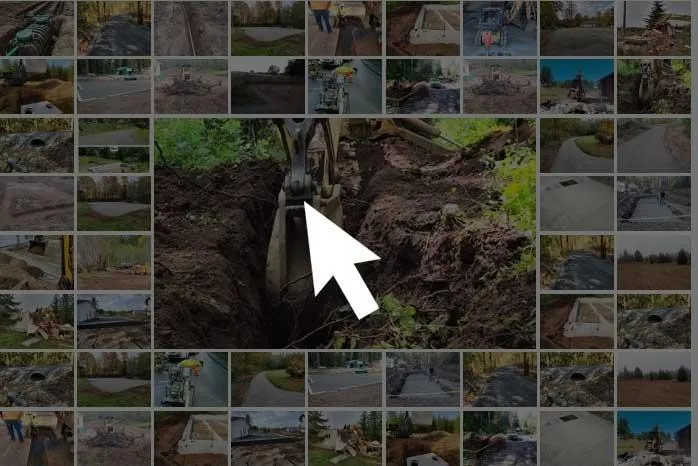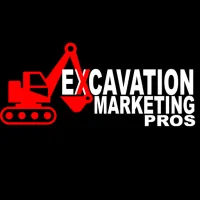The Royal Flush - Design, Install & Repair
Licensed, Bonded & Insured | Family Owned & Operated Since 1965
Licensed #WI DNR, MI EGLE
WLWCA Members | MSHA Certified
we help greater Chehalis families & contractors through excellence in residential & commercial excavation, septic & demolition services.
You'll ❤️Saving 🕒 And 💰 Without Headaches!😊

AVOID COSTLY MISTAKES:
Do NOT hire an excavating contractor without first reading our free guide:
The ULTIMATE Excavation & Septic "Success Guide."
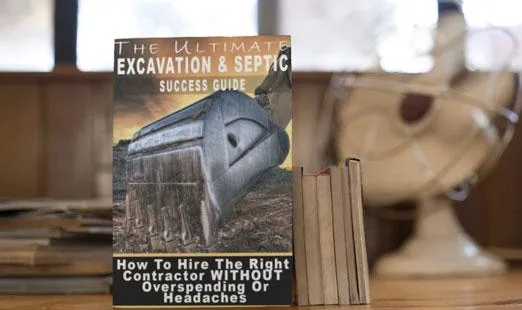
"We Help Familes & Businesses Through Excellence In Septic Services Throughout Wisconsin & Michigan!"
Dyer. Inc is your choice for septic design, septic tank installation, septic system repairs and septic pumping. We pride ourselves in the highest commitment to quality and customer satisfaction. We are the number one choice in your service area for septic services.
Our staff is licensed in Wisconsin as septic operators and certified as Michigan business operators too. Our staff maintains complete and current continuing education requirements.
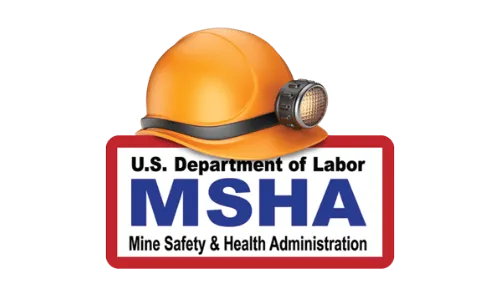
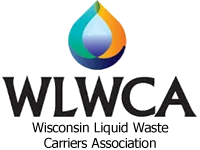
Searching for Septic Services near me?

Your time and effort looking for the best septic contractor just paid off! We understand, you're probably searching for septic companies near me and "Whammo!" up pops hundreds of septic service contractors claiming to provide the best septic tank services. So who do you trust your septic tank needs with? We understand it can be a little daunting. We are happy to help in any way and sincerely thank you for taking time to consider us! Here's some of our most popular excavation services we can help you with right away:
✔️ Septic services of all kinds
✔️ Septic Inspections (County & Realty)
✔️ Septic pumping (Residential & Commercial since 1965)
✔️ Cleaning a Septic Tank
✔️ Septic System Design (Since 1989)
✔️ Septic System Installation
We Take Pride In Quality Septic Services Launched FAST!

When considering a local excavation contractor or excavation company what should you consider? Along with the highest quality site work you want your excavation services to be done quickly and without headaches.
You can also count on us for:
✔️ Snow Plowing- Commercial only, snow removal & salt/sand applications
✔️ Drain Field replacement/ Leach Field Replacement
✔️ Septic Holding Tanks Sales

wE PROMISE TO clean up after Ourselves!
How Do You Know Your Hiring The Right Septic Company?
COMPARE THE SERVICES OFFERED BY DIFFERENT SEPTIC COMPANIES
TAKE A LOOK AT PICTURES OF SEPTIC WORK DONE BY THE COMPANIES YOU’RE CONSIDERING
CHECK OUT REVIEWS, ASK FOR REFERENCES AND COMMENTS FROM PAST CLIENTS
CHECK THE EQUIPMENT OWNED BY THE SEPTIC COMPANIES
ARE THEY PROFESSIONAL AND COURTEOUS WHEN THEY ANSWER THE PHONE?
DO THEY PROMPTLY RETURN CALLS?
HOW WELL DO THEY PAY ATTENTION TO THE SMALLEST DETAIL?
See Photos!
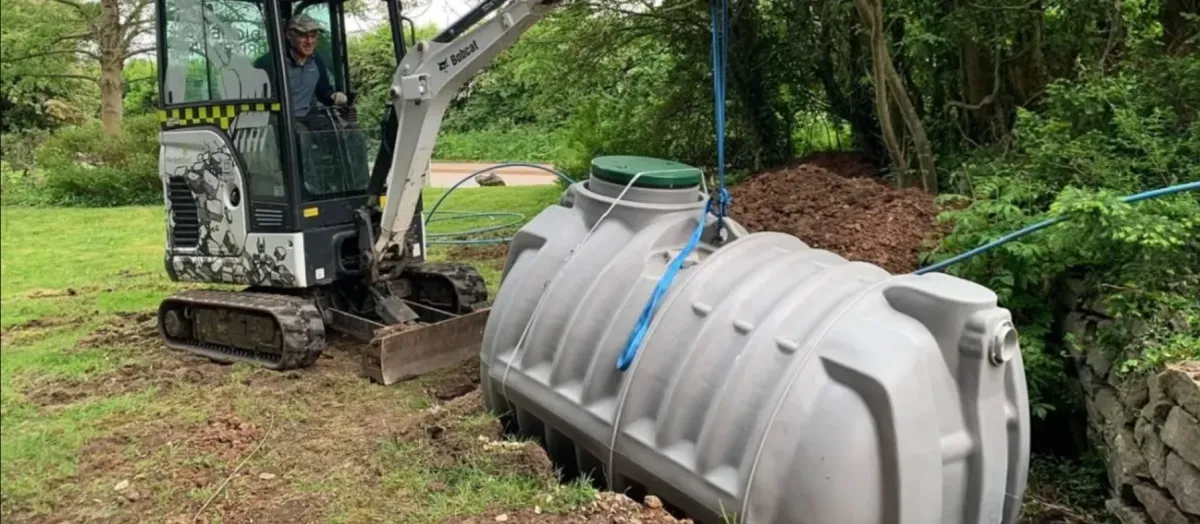
Best Septic System Designs for Florence County Homes | Dyer Inc
1. What Homeowners in Florence County Are Worried About
You’re probably here because you’re building a home or upgrading an older one, and someone mentioned, “You’ll need a septic system.” Great. One more thing on your list, right?
If you’re like most homeowners we work with, you’re not a septic expert. You just want a system that won’t fail, won’t cost a fortune, and won’t turn your backyard into a swamp. Maybe you’ve even heard a horror story or two—overflowing tanks, massive digging, systems that had to be redone. That stuff sticks in your mind.
You're worried about choosing the wrong design and paying for it later.
We get it. Septic systems aren't something people talk about often, but when they go bad? You’ll hear about it.
2. Why Your Septic System Design Matters More Than You Think
Here’s the deal: not all septic systems are created equal, especially around here.
Florence County has a mix of sandy soils, clay pockets, shallow bedrock, and plenty of forested lots—all of which change how your septic system should be designed.
It’s not just about digging a hole and putting in a tank. The design affects:
How long does your system last
Whether it meets health codes
How often do you need to be pumped?
Whether your lawn stays dry or turns into a marsh every spring
Cut corners now, and you’ll pay later—financially and emotionally.
3. Understanding Your Options: Septic Designs That Work in Florence
There are a few main types of septic systems that work well in our part of Wisconsin. Here’s a simple breakdown of the ones you’ll hear about most:
Conventional Gravity System
Best for: Lots with good soil and a natural slope.
How it works: Wastewater flows by gravity into a tank, then into a drain field.
Upside: Lower cost, less maintenance.
Downside: Not great for poor soils or flat lots.
Pressurized System
Best for: Slightly tougher soil or where gravity can’t do the job.
How it works: A pump pushes wastewater into the drain field.
Upside: Can work on more properties.
Downside: More moving parts = more maintenance.
Mound System
Best for: Shallow soils, high water tables, or lots with clay.
How it works: Waste is pumped into a mound built above ground with layers of sand and gravel.
Upside: Works where other systems can’t.
Downside: Higher up-front cost and a more noticeable footprint.
Aerobic Treatment Unit (ATU)
Best for: Environmentally sensitive areas or small lots.
How it works: It adds oxygen to break down waste faster before releasing it.
Upside: Cleaner output, smaller drain field needed.
Downside: Electrical components, higher cost, more upkeep.
4. Ranked: The Best Septic System Designs for Local Homes
We’ve worked all over Florence County—from waterfront properties to wooded lots—and based on soil conditions, lot size, cost, reliability, and homeowner feedback, here’s how the top designs stack up:
1. Pressurized System
Why it ranks first: It works well on the widest range of lots here. It's not the cheapest, but it strikes the best balance between cost, performance, and longevity.
2. Mound System
Why it ranks second: If you’ve got poor soil (which is common), this is your hero. It may not be pretty, but it works when nothing else will.
3. Gravity System
Why it ranks third: Simple, reliable, and affordable. But it only works on ideal properties with great soil and slope.
4. ATU (Aerobic) System
Why it ranks fourth: Great for sensitive areas or small lots, but the maintenance isn’t for everyone. You’ll need a service contract in most cases.
5. Picking the Right Design for Your Soil, Lot, and Budget
Don’t guess. Your neighbor’s system might not work for your property, even if you live across the street. What matters is:
Soil testing (percolation tests)
Lot slope
Water table depth
Nearby wells, lakes, or rivers
That’s why we always start with a site evaluation. You wouldn’t build a house without a blueprint—same idea here.
Tip: If you’re building a new home, design your septic system before finalizing where your house and driveway go. It could save you thousands.
6. What Can Go Wrong with the Wrong Design (And How to Avoid It)
We’ve seen it all:
A homeowner who hired a cut-rate installer and had sewage backing up within two years
Another who picked a design too big for their budget and had to delay their build
One guy had a beautiful lawn... until his septic tank cracked mid-winter
Here’s what usually causes problems:
No soil testing
Oversized or undersized systems
Incorrect tank placement
Poor pump sizing
Systems not designed for winter conditions (we're in Wisconsin, after all)
If your system isn’t built for your property, nature will win.
7. Real-World Tips from Local Homeowners
A few things we’ve heard from folks in Florence, Spread Eagle, and Long Lake:
"I wish I’d asked more questions before signing off on my first system. The second time around, I got it right."
"We went with a mound system, and yeah, it was a little more—but we haven’t had a single issue in 7 years."
"Our last installer just gave us a quote. Dyer gave us options. That’s what made the difference."
The takeaway? Don’t just ask what the system is—ask why it’s the right one for you.
8. How We Help Families in Florence County Get It Right
At Dyer Inc., we’ve been working in rugged soils and frozen ground for years. We’re not a massive outfit, and we’re proud of that. You’re not getting a cookie-cutter plan from someone in a city office. You’re getting local know-how and custom design work from people who understand this land.
We’ll:
Visit your site
Get your soil tested
Talk through your budget
Show you two or three design options
Help you understand what each one really means
And we’ll walk you through the permits, county approvals, and what to expect during install, without the pressure or the sales pitch.
9. What to Do Before You Break Ground
A good septic system is like a good foundation. You don’t see it, but it keeps your whole home running.
Here’s what we’d recommend:
Get a site eval before you dig
Ask for at least two design options
Make sure your system matches your household size and future plans
Don’t just pick what’s cheapest—pick what fits
Talk to a local contractor who knows Florence County’s soil like the back of their hand
If you’re ready to start planning, or even just want a second opinion, we’re happy to talk. Septic systems may not be glamorous, but for us, getting them right is personal.
We Offer Septic Services Near You!
If you don't see your specific area contact us and we may still be able to help or give a referral.

The Royal Flush - Design, Install & Repair
Address:
1025 W Fischer Lake Pkwy, Niagara, WI 54151
Hours:
Mon - Fri. 8:00 am - 5:00 pm
Weekends & Holidays by appointment only*
*There will be a surcharge for after hours & holiday appointments
All rights reserved | Privacy policy | Client Support Area | For Cathy | Terms & Conditions | Privacy Policy

